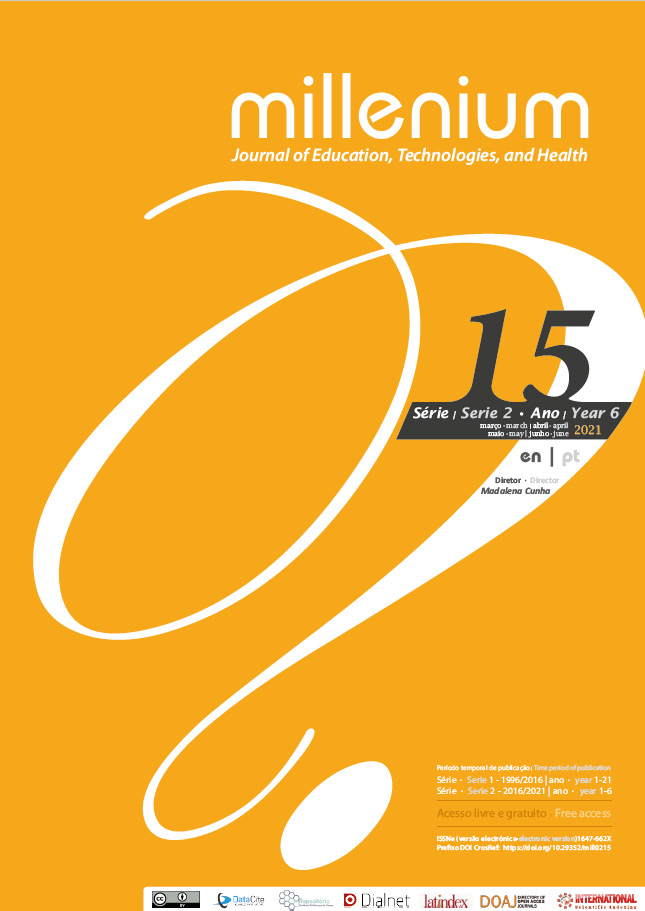The intervention of the judicial power before the state omission in the guarantee of the right to health
the judicialization of health
DOI:
https://doi.org/10.29352/mill0215.21349Keywords:
health, judicialization, state omission, rightsAbstract
Introduction: This article highlights the Intervention of the Judiciary Power in the face of state omission in guaranteeing the right to health: the judicialization of health, is the theme of this article, resulting from critical dialectical explanatory research applied in Brazilian public health.
Objectives: To evaluate the importance and effectiveness of urgent protection in guaranteeing the right to health; To identify the causes that lead to state omission in guaranteeing the right to health; Critically analyzing the judicialization of health; Demystifying the role of the Judiciary in the face of the inertia of federated entities; To relate material theory with practice, in order to present this dichotomy and overcome it.
Methods: This is a bibliographic, inductive - deductive research, in order to demonstrate the requirements for granting provisional guardianship, its importance in the health policy scenario, in addition to critically analyzing the judicialization of health in the State of Goiás.
Results: Judicialization is still a problem that needs to be reviewed, among the three branches of government, since adverse attitudes towards drug concessions are being unconstitutional, since the Constitution itself provides the powers of each power in the letter of the law, and In this context, what we are experiencing over the years is exactly a reversal of roles, since the responsibility for executing the service and the medication lies with the executive, and the judiciary often fails to exercise its role to play the role of executive power.
Conclusion: The right to life, health and the dignity of the human person are closely linked, since in the absence of one, there is no possibility of exercising the others. In this context and to conclude this analysis, according to the sources of the law, it is necessary to define precisely what has more strength in the legal system: principles, laws, jurisprudence, customs.
Downloads
References
Barroso, L. R. (2009). Judicialização, ativismo judicial e legitimidade democrática. Suffragium - Revista do Tribunal Regional Eleitoral do Ceará, 5(8), 11-22. Retrieved from https://bibliotecadigital.tse.jus.br/xmlui/handle/bdtse/5498 [Acess: 28 April 2018].
Barroso, L. R. (2009). Da falta de efetividade à judicialização excessiva: direito à saúde, fornecimento gratuito de medicamentos e parâmetros para a atuação judicial. Revista Jurisprudência Mineira, Belo Horizonte, 60(188),35-50. Retrieved from https://bd.tjmg.jus.br/jspui/handle/tjmg/516. [Acess: 3 June 2018].
Bontempo, A. (2005). Direitos Sociais: eficácia e acionabilidade à luz da Constituição de 1988. Curitiba: Juruá Editora.
Brasil, Governo do Estado de S. Paulo (1988). Constituição da República Federativa do Brasil. Constituição do Estado de São Paulo. São Paulo: Imprensa Oficial.
Brasil, Casa Civil da Presidência da República, Subchefia para Assuntos Jurídicos (1990, september 20). Lei nº 8.080 de 19 de setembro de 1990. Lei Orgânica da Saúde. Brasília: Câmara dos Deputados. Retrieved from https://www.nescon.medicina.ufmg.br/biblioteca/imagem/Lei8080.pdf
Dallari, S. (1988). O Direito à Saúde. Jornal de Saúde Pública, S. Paulo, 22(1), 57-63. Retrieved from https://www.scielo.br/pdf/rsp/v22n1/08.pdf
Elias, P. E. M. (2002). Por uma refundação macropolítica do SUS: a gestão para a equidade no cotidiano dos serviços. Saúde e Sociedade, São Paulo, 11, (1), 25-36. https://doi.org/10.1590/S0104-12902002000100005
Leivas, P. G. C. (2006). Teoria dos direitos fundamentais sociais. Porto Alegre: Livraria do Advogado.
Lenza, P. (2013). Direito Constitucional Esquematizado. (17thed.). São Paulo: Saraiva.
Morais, A. (2017). Direito constitucional. São Paulo: Atlas.
Neves, D. A. A. (2016). Manual de Direito Processual Civil. (8th ed). Salvador: Editora Jus Podivm.
Novelino, M. (2014). Manual de direito constitucional. (9th rev.). São Paulo: Método.
Oliveira Junior, J. F. (2012). Ativismo judicial ou ativismo jurídico? O ativismo do poder judiciário como proposta ao passivismo do poder legislativo no Brasil. In: Tribunal Regional Federal da 1ª Região, Escola de Magistratura Federal da 1ª Região, II Jornadas de Direito Constitucional (pp. 221-238). Brasília: ESMAF. Retrieved from https://portal.trf1.jus.br/data/files/AF/F5/0D/E9/7B3E3410877BC934052809C2/LIvro%20II%20Direirto%20Constitucional.pdf
Ordacgy, A .S. (2007). A tutela de direito de saúde como um direito fundamental do cidadão. Retrieved from http://www.dpu.gov.br/pdf/artigos/artigo_saude_andre.pdf. [Access in 17 March 2020].
Ortega, F. T. (2016). Tutela provisória e o Novo CPC - mudanças significativas. In JusBrasil. Retrieved from https://draflaviaortega.jusbrasil.com.br/artigos/317933437/tutela-provisoria-e-o-novo-cpc-mudancas-significativas. [Access in 01 September 2019]
Ribeiro, P. S. (s.d.). Mas o que seria o SUS? Quais suas diretrizes e princípios gerais? In Brasil Escola. Retrieved from https://brasilescola.uol.com.br/sociologia/mas-que-seria-sus-quais-suas-diretrizes-principios-gerais.htm. [Access in 15 August 2019]
Sarlet, I. W. (1998). A eficácia dos direitos fundamentais. Porto Alegre: Livraria do Advogado.
Vasconcelos, C. M., & Pasche, D. F. (2006). O sistema único de saúde. In. G. W. S. Campos, M. C. S. Minayo, M. Akerman, J. M. Drumond, & Y. M. Carvalho (Eds.), Tratado de saúde coletiva (pp. 531-562). São Paulo: Hucitec.
Downloads
Published
How to Cite
Issue
Section
License

This work is licensed under a Creative Commons Attribution 4.0 International License.
Authors who submit proposals for this journal agree to the following terms:
a) Articles are published under the Licença Creative Commons (CC BY 4.0), in full open-access, without any cost or fees of any kind to the author or the reader;
b) The authors retain copyright and grant the journal right of first publication, allowing the free sharing of work, provided it is correctly attributed the authorship and initial publication in this journal;
c) The authors are permitted to take on additional contracts separately for non-exclusive distribution of the version of the work published in this journal (eg, post it to an institutional repository or as a book), with an acknowledgment of its initial publication in this journal;
d) Authors are permitted and encouraged to publish and distribute their work online (eg, in institutional repositories or on their website) as it can lead to productive exchanges, as well as increase the impact and citation of published work
Documents required for submission
Article template (Editable format)





